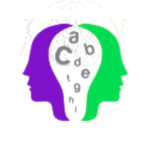Last Updated on June 26, 2023
Hey there Newbies! 😊
Today, I want to delve into the fascinating world of Artificial Intelligence (AI) and help you grasp the basics. AI is a hot topic these days, and it’s no wonder why. From self-driving cars to virtual assistants, AI is transforming various aspects of our lives. So, let’s dive in and explore what AI is all about.
What is Artificial Intelligence?
Artificial Intelligence refers to the development of computer systems that can perform tasks that typically require human intelligence. It’s about creating machines that can think, reason, learn, and make decisions in a way that imitates human intelligence. AI enables computers to process and analyze vast amounts of data, recognize patterns, and adapt their behavior accordingly.
Types of Artificial Intelligence
There are two primary types of AI: Narrow AI and General AI.
1. Narrow AI: Narrow AI, also known as Weak AI, is designed to perform specific tasks or solve particular problems. Examples of Narrow AI include voice assistants like Siri and Alexa, recommendation systems used by streaming platforms, and spam filters in email services. These AI systems excel in their specific domain but lack general human-like intelligence.
2. General AI: General AI, also referred to as Strong AI or Artificial General Intelligence (AGI), aims to possess human-level intelligence across a broad range of tasks. It would be capable of understanding, learning, and performing tasks just as humans do. However, true General AI is still in the realm of science fiction and is yet to be achieved.
Machine Learning and Deep Learning
Machine Learning (ML) is a subset of AI that focuses on algorithms and models that enable computers to learn from data and make predictions or decisions without explicit programming. ML algorithms analyze large datasets, identify patterns, and generate insights or predictions. It powers applications like image recognition, natural language processing, and fraud detection.
Deep Learning is a subfield of Machine Learning that deals with Artificial Neural Networks. These networks, inspired by the human brain, consist of interconnected layers of artificial neurons. Deep Learning algorithms can automatically learn representations of data through these neural networks, enabling them to perform complex tasks such as image classification, speech recognition, and language translation.
Applications of Artificial Intelligence
Artificial Intelligence has made its way into various domains and industries. Here are just a few examples:
- Healthcare: AI is revolutionizing healthcare by enabling faster and more accurate diagnostics, personalized treatment plans, and drug discovery. It helps analyze medical images, predict disease outcomes, and support clinical decision-making.
- Finance: AI is transforming the finance industry with applications such as algorithmic trading, fraud detection, and risk assessment. It can analyze vast amounts of financial data, identify trends, and make predictions to optimize investment strategies.
- Transportation: AI plays a crucial role in self-driving cars and autonomous vehicles. It enables these vehicles to perceive their surroundings, make decisions, and navigate safely, potentially reducing accidents and enhancing transportation efficiency.
- Customer Service: Many companies are using AI-powered chatbots and virtual assistants to provide quick and personalized customer support. These AI systems can understand and respond to customer queries, improving customer satisfaction and reducing response times.
Ethical Considerations and Challenges
As AI continues to advance, it raises ethical considerations and challenges. Some of these include:
- Bias and Fairness: AI systems are only as unbiased as the data they learn from. Biased data can lead to biased decisions and perpetuate existing societal inequalities. Ensuring fairness and addressing biases is an ongoing challenge in AI development.
- Privacy and Security: AI often relies on vast amounts of personal data. Safeguarding this data from unauthorized access and ensuring privacy protection is crucial. Striking a balance between data utility and privacy is a key challenge.
- Job Displacement: The rise of AI has raised concerns about job displacement. As automation increases, certain tasks and job roles may become obsolete. However, AI also creates new job opportunities and upskilling and reskilling programs can help individuals adapt to this changing landscape.
Embracing Artificial Intelligence
Artificial Intelligence holds immense potential to shape our future positively. By understanding its fundamentals and implications, we can embrace AI and leverage its benefits while addressing the associated challenges. Exploring AI-related courses, staying updated with the latest advancements, and engaging in discussions about AI ethics are great ways to get involved.
I hope this beginner’s guide has provided you with a solid foundation in understanding Artificial Intelligence. Feel free to explore further, ask questions, and embark on your AI journey. Together, let’s unlock the potential of this transformative technology!
About Artificial Intelligence (AI) Topic
Welcome to our Artificial Intelligence – AI topic, where we explore the latest developments in artificial intelligence and how they’re impacting businesses, society, and our lives. From practical applications to ethical considerations, our articles cover a range of topics related to AI, including machine learning, natural language processing, computer vision, and more. Join us as we delve into the fascinating world of AI and its implications for the future.
About Technology Topic
Stay up-to-date with the latest tech trends and developments in this category. From gadgets to software, we cover it all to help you navigate the digital world.






















